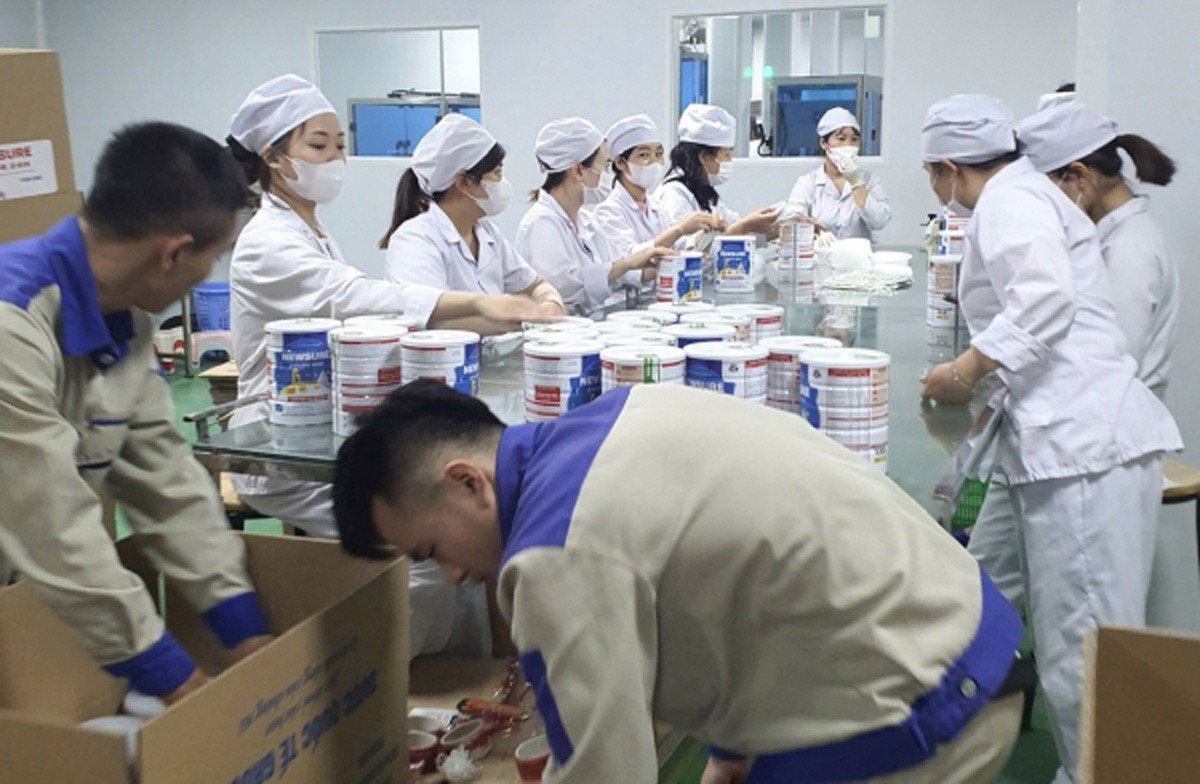Health Minister Dao Hong Lan has issued a stern warning about counterfeit goods in the medical field, declaring them not merely commercial fraud but “a crime that endangers lives.” She emphasized the urgent need to tighten post-market inspections and eliminate complacency in regulating health-related products.
Speaking at a national virtual conference on May 23, which reviewed efforts to combat smuggling, trade fraud, and counterfeit goods in the healthcare sector, Minister Lan said, “We cannot be passive in overseeing products that directly affect people’s health and lives.”
According to the Criminal Police Department (C03) under the Ministry of Public Security, authorities have launched six criminal cases and prosecuted over 100 individuals this year alone for producing and selling counterfeit food products.
Post-inspection gaps exposed

Tran Quang Hien, Director of An Giang Department of Health, admitted there are serious shortcomings in post-inspection procedures. Limited manpower has left authorities only able to inspect a small fraction of businesses, while most operate under a self-declaration mechanism that doesn’t ensure actual product quality.
In Hoa Binh province - recently rocked by a counterfeit milk scandal - Health Director Bui Thu Hang revealed that, despite 15 inspection teams checking 235 establishments in 2024, only three violations were detected. Sampling has largely focused on microbiological indicators, not on verifying product quality, making it impossible to confirm counterfeit goods.
“We mainly check whether facilities meet operational standards. We only investigate product quality when there’s a public complaint,” Hang explained.
Complicating matters further, many companies register products in Hoa Binh but manufacture them elsewhere and avoid local distribution, making inspections even more difficult. In the recent fake milk ring, for example, a company registered its product in Hoa Binh but did not sell there at all.
Even when inspections are conducted, catching noncompliant products is challenging. "Producers often use e-commerce platforms or private promotional events to avoid scrutiny," Hang said, noting that limited resources make comprehensive inspections unrealistic.
“Even if we suspect a product, we may not act due to the high cost of post-market testing,” she added, emphasizing that provinces can't shoulder these costs alone - especially with numerous product categories beyond milk, drugs, and supplements also requiring oversight.
Provincial health officials urged the Ministry of Health to clearly define which products and ingredients must be tested every six or twelve months, and to require continuous quality assurance, with public disclosure through official systems. Hien also recommended stricter accountability for businesses post-launch, instead of allowing them to profit from initial approval before downgrading quality.
Hoa Binh’s Department of Health proposed amending Decree 15 to hold businesses fully responsible for their products after market entry, while regulatory agencies focus on enforcement and compliance.
Minister: No more excuses for lax enforcement
In her conclusion, Minister Dao Hong Lan reiterated that counterfeit medical goods are criminal offenses - not ordinary trade violations. “We cannot treat life-threatening products like other commercial goods,” she said.
Lan urged local health authorities to take more initiative, rejecting excuses of limited staff or funding. “If resources are lacking, report to provincial leaders. If you don’t report or propose, the responsibility falls squarely on the health sector.”
She revealed that a revised version of Decree 15 is expected to be submitted to the government by late May or early June, with a major focus on decentralizing authority to local levels.
Addressing workforce concerns, she pointed out that Vietnam has over 2,000 inspectors - not counting those in other agencies - so the problem lies in poor coordination and ineffective deployment. “Three to five people cannot handle tens of thousands of products alone. We must reorganize resources and target high-risk categories with unannounced inspections,” she stressed.
Minister Lan also called for a review and correction of all tasks related to licensing, renewals, declarations, and product evaluations. She urged a culture shift within the health sector to ensure officials fully understand the weight of their responsibilities - so that incidents like the recent scandal at the Food Safety Authority do not recur.
Vo Thu